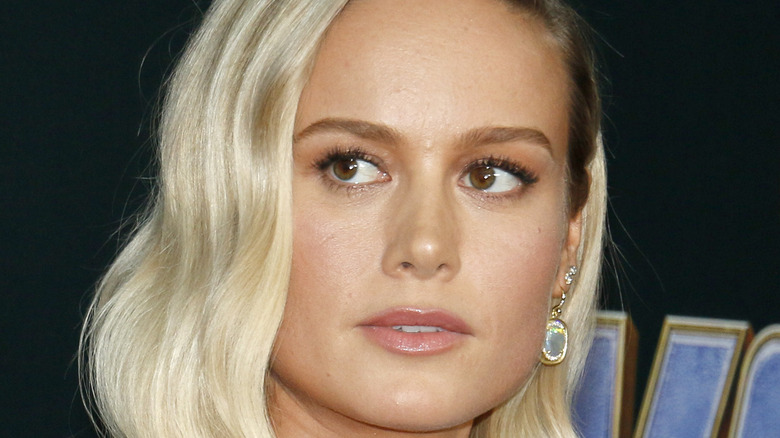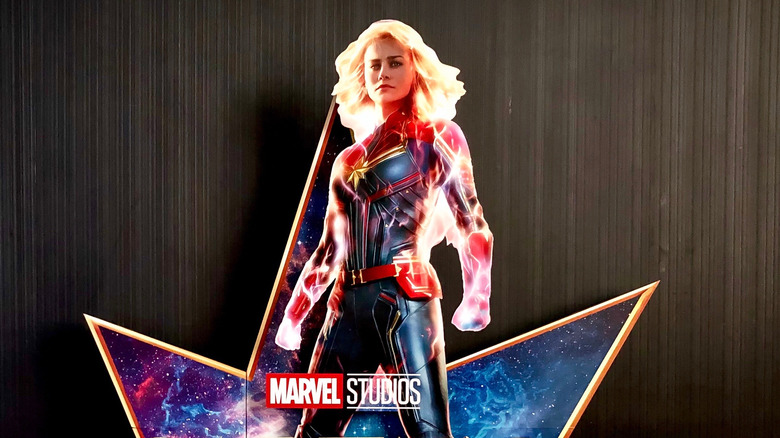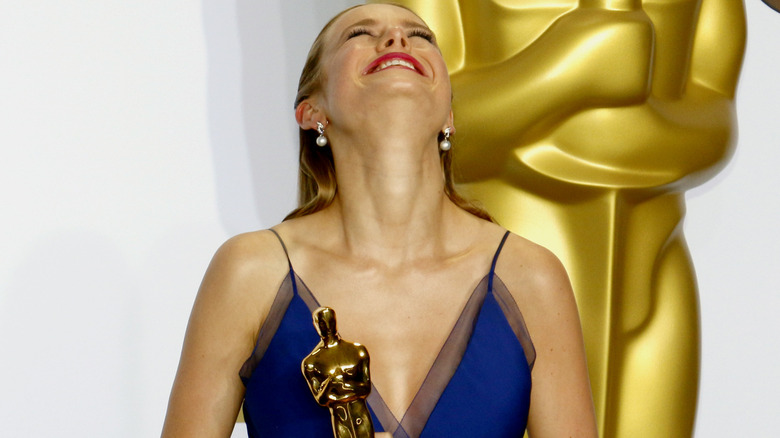Inside The Brie Larson Controversy
Brie Larson's star has been on the rise for many years, but it has only skyrocketed even further since she joined the Marvel Cinematic Universe as Carol Danvers, aka Captain Marvel. Larson starred in her character's titular film in early 2019 and just a few months later appeared in "Avengers: Endgame," a pinnacle moment over 20 films in the making, where it was revealed that Danvers was not included in the 50% of all living beings that ceased to exist after Thanos created The Blip from the six Infinity Stones.
Larson was powerful in "Endgame," but she didn't steal the scene from the OG Avengers, for whom this film was a closing chapter. Still, Larson became the subject of heated debate during the lead up to "Captain Marvel" and "Endgame." What happened to make this star, who is set to be a leading figure in the MCU moving forward, so controversial? Continue reading to find out!
How gender affect the MCU star
When it comes to the Brie Larson controversy, one thing is for certain: There are gender biases at play. For example, MCU fans criticized Larson for "Captain Marvel," claiming her lines had a cold delivery and she personally didn't smile enough (via Screen Rant). This all comes after Larson was initially hesitant to take the role of Carol Danvers because of pressure and fear. Interestingly, other women in the MCU, such as Scarlett Johansson, who portrays Natasha Romanoff/Black Widow, have not been criticized in the same ways Larson has.
Larson came into the MCU to play a titular character — Marvel is literally in her name. Moreover, her powers are on a level we hadn't seen in the MCU before. Because of this, fans were extra hard on her. If she were going to play such a big role, they wanted her to be perfect. On a biased level, it's also inferred that a lot of fans didn't want such a powerful woman coming into the mix at this point. The inclusion of women is seen as feminist pandering rather than uplifting voices, and this is part of the overarching problem. As Screen Rant notes, there were genuine problems with the marketing of "Captain Marvel," but it was just that: the marketing, not the woman playing the character.
How a marvel was created out of Larson's advocacy
The controversy surrounding Brie Larson goes deeper than her portrayal of the character, unfortunately. Playing Captain Marvel has opened Larson up to sharing her life more with the public and she's become more active on social media. However, while doing press to promote "Captain Marvel," Larson's words got misconstrued, creating a bigger controversy for the actor.
In essence, Larson, in an interview, advocated for the rise of intersectional voices in the film industry. The industry's reviewers are largely white and male, and Larson wanted to bring attention to this. She specifically mentioned that she would rather hear what a person of color thinks about the 2018 film "A Wrinkle in Time" — a film with a diverse cast — rather than a middle-aged white man (via Cinema Blend). This got taken as misandry on the internet rather than advocacy. Later, as Cinema Blend adds, Larson clarified on the web show "Hot Ones" by saying, "What I'm looking for is to bring more seats up to the table."
By opening herself up to criticism in such a big role as Captain Marvel, Larson hopes to uplift others, and this is the heart of her controversy. No one is saying fans can't critique an actor's job in a film, but it's important to consider which of your critiques are rooted in systemic bias.


